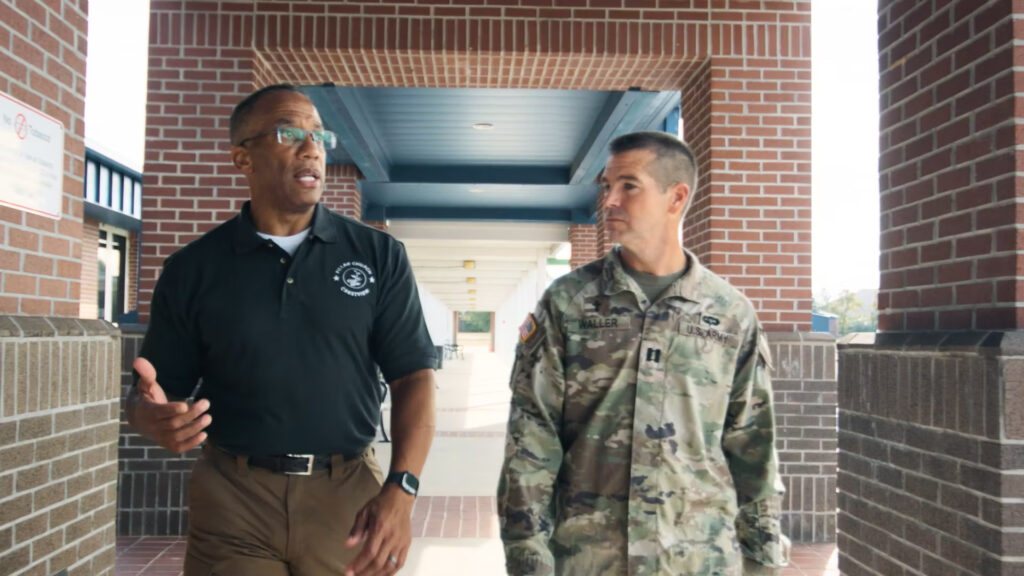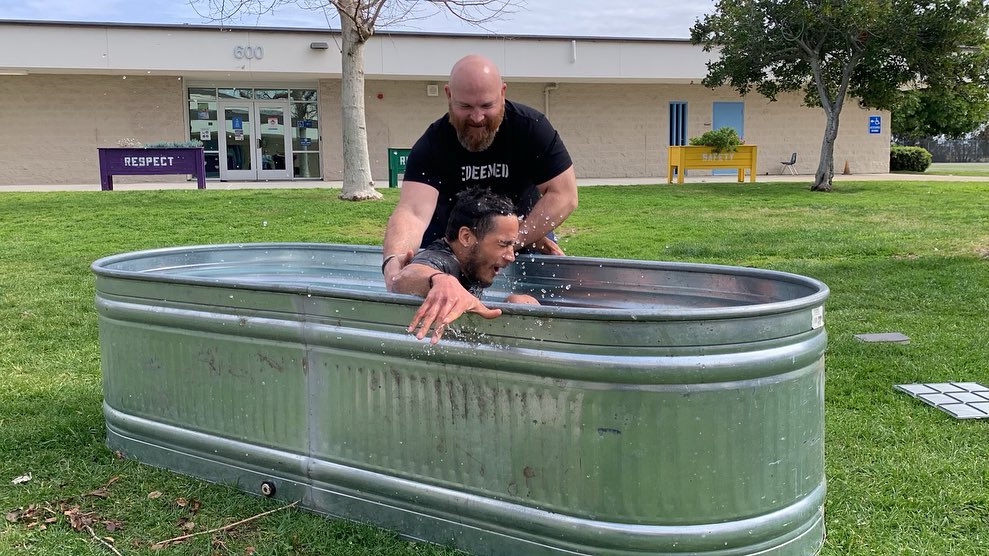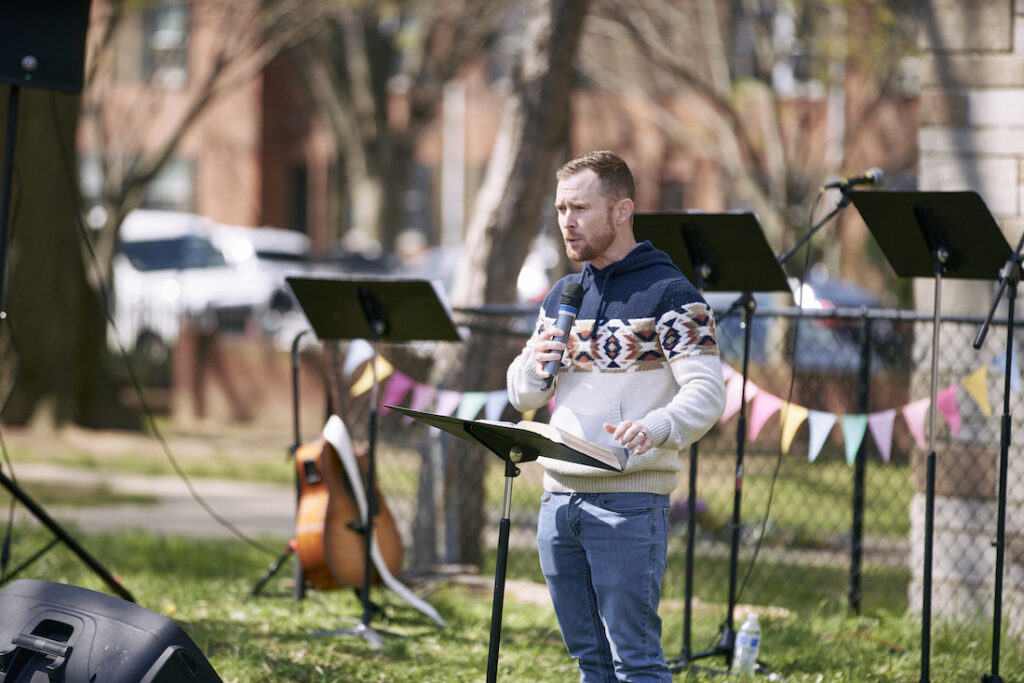Recently I had the “privilege” of shopping at Home Depot. I say “privilege” because, depending on how handy you consider yourself, shopping at Home Depot is either a major blessing or a sick joke. I fall squarely into the second category. My life’s culminating work of “handiness” is in having — one time — hooked up an overhead light fixture in my apartment. So for me, walking into Home Depot is like walking into Fenway Park covered head-to-toe in Yankees garb — demeaning, to say the least! And in Home Depot, it’s not that I have no idea what I’m looking at. I know the difference, for example, between a saw and hammer, or what it takes to replace a screen door. It’s just that I really don’t know how to do those things.
It seems to me that with disciple making, many of us operate in much the same way. We know all about it: the tools to use, strategies to employ, even how to distinguish healthy from unhealthy disciple making. But when it comes to actually doing it, we tend to be, let’s just say, “less than handy.” Sure, we can teach principles and build and lead organizations, maybe even huge ones. But if given the opportunity, can we lead a person, regardless of where they are in their spiritual journey, to Christ and then to continually grow in Christ? Even more, could we show someone else how to do that?
Here are a two diagnostic questions to consider, both of which are admittedly centered more on belief than behavior.
(1) Are you convinced that building disciples will get you the church, when building the church may not necessarily get you disciples?
In Matthew 16:18, Jesus reminds us that He’s the one who builds His church so the gates of hell do not prevail against it. Church-building is His job, not ours! Later, in Matthew 28:19-20, He confirms this while telling us what our job is: “Go therefore and make disciples of all nations, baptizing them in the name of the Father and of the Son and of the Holy Spirit, teaching them to observe all that I have commanded you.” It’s as if Jesus is saying, “You focus on being a disciple who makes disciples, and let me build the church out of that!” He’s reminding us to stay in our lane, work the job description He’s given us, and let Him work His. The church is the fruit of disciple making, not the other way around. So often we get caught up in “playing church” while forsaking actual discipleship. After all, it’s possible to build a huge church and have only gathered a crowd. What’s not possible is to make disciples and not get the church. Which means there’s a lot of good things you can do, but there’s one thing you must do: make disciples!
(2) Are you celebrating the whole scope of discipleship or just the sexy parts?
In his Reflections on the Psalms, C.S. Lewis said, “I think we delight to praise what we enjoy because the praise not merely expresses but completes the enjoyment.” His point is that when we really enjoy something we celebrate it. And in celebrating it, we enjoy it more!
It seems to me that many of us aren’t celebrating disciple making, because we don’t really enjoy it. That’s not to say we don’t care if people come to trust Jesus. Of course we do! It’s just to say that unless people are being converted left and right, we can feel there’s not much to celebrate. But such a perspective is based off a false dichotomy between evangelism and discipleship, where evangelism is about sharing the gospel with not-yet-Christians, while discipleship is about helping already-Christians essentially graduate beyond the gospel. But the truth is, we never get beyond the gospel to something more advanced. The gospel is not the first step in a stairway of truths; it’s the hub in a wheel of truth. It’s not just the ABCs of Christianity, but the A to Z of Christianity. We’re not justified by the gospel and then sanctified by theology or obedience. The gospel is the way we grow (Gal. 3:1-3) and are renewed (Col.1:6). This means that, whether a person needs to be discipled into believing the gospel for salvation or believing it for sanctification, all of us need to hear and believe the gospel — which means we all need to be consistently discipled!
When you understand that, everyday, seemingly mundane activities and conversations suddenly become layered with value, meaning and, ultimately, joy! Everything becomes an opportunity to disciple, in that everything is a chance to help people move from one degree of belief in Jesus to another. Discipleship through that lens begins to be more about conversation than conversion, which leads to far more opportunity for celebration!
Belief, then behavior!
Ultimately disciple making starts with what you believe. Do you believe that it’s primary, even if prioritizing it means sacrificing speed, immediate church “growth,” your reputation, comfort, or the like? And do you believe that it’s necessary for both unbelievers and believers alike? If the answer to both is yes, you’ll likely be compelled to seek out resources for putting those beliefs into action (and there’s a ton of great ones out there). At the same you will begin seeing every conversation and interaction as an exciting discipleship opportunity!
If the answer is no, I would encourage you to simply and honestly take that to the Lord. Ask Him to help you rest in His love — the measure of which is Christ on the Cross for you! The more you “abide in His love,” which is to say the more you recall and rest in the gospel, the more you’ll produce the “fruit” of loving disciple making (John 15:5,9). After all, we only love “because He first loved us!” (1 John 4:19)
Published February 13, 2018



